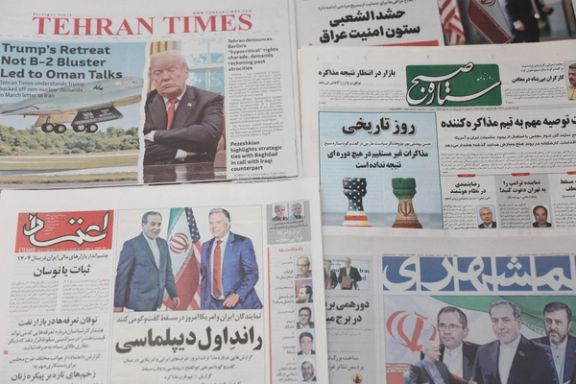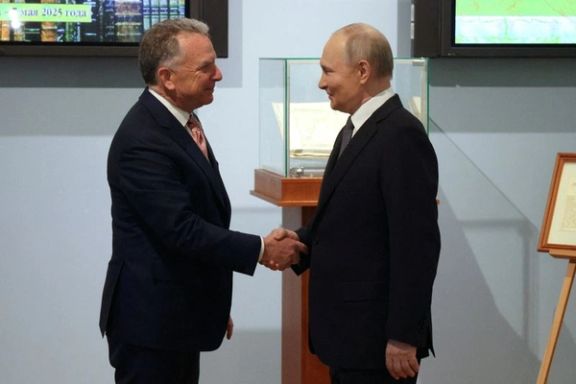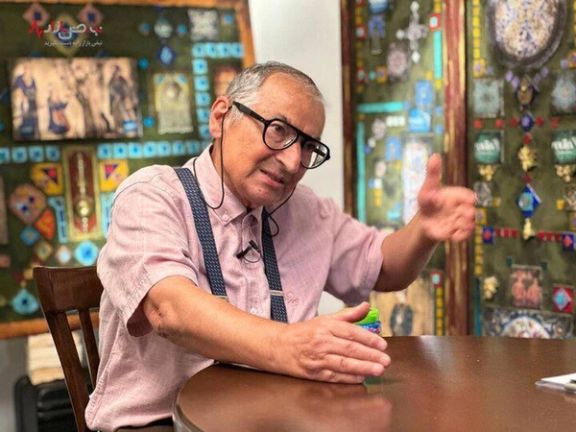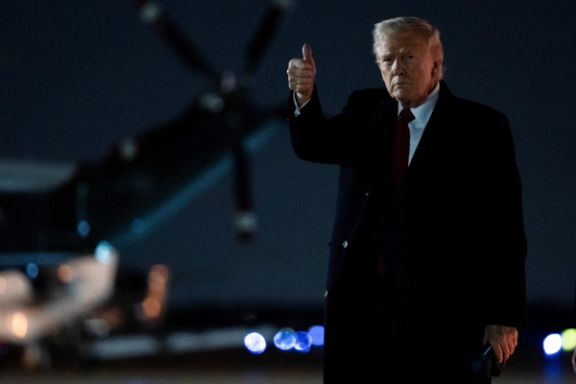Related Articles

US envoy Steve Witkoff, who on Monday appeared to signal that Washington might tolerate limited uranium enrichment by Iran, clarified in a Tuesday tweet that Tehran "must stop and eliminate its nuclear enrichment and weaponization program."
Witkoff’s remarks on Monday suggested that any new deal could closely resemble the Obama-era JCPOA, which President Donald Trump withdrew from in 2018.
In a tweet on Tuesday Witkoff seemed to have backtracked from his earlier statement.
“A deal with Iran will only be completed if it is a Trump deal," the special envoy said and added, "...meaning that Iran must stop and eliminate its nuclear enrichment and weaponization program."
On Monday, Witkoff had said in an interview with Fox News’ Hannity that Iran's uranium enrichment would not be eliminated entirely but rather scaled back to the JCPOA’s limit of 3.67 percent. “They do not need to enrich past 3.67 percent,” he said.
Ha also added that “This is going to be much about verification on the enrichment program, and then ultimately verification on weaponization. That includes missiles—the type of missiles that they have stockpiled there—and it includes the trigger for a bomb.”
This particular demand would be within reach, as Tehran has repeatedly has called for a US return to the original terms of the JCPOA.
So what was new in Witkoff’s remarks in his interview with Fox?
First, the Trump administration is seeking a broader inspection regime than the one included in the JCPOA. This could entail access not only to declared enrichment facilities, but also to potential sites involved in warhead development. Iran has consistently resisted such expanded oversight, and this will likely be a point of friction in the talks.
Second, Witkoff explicitly mentioned Iran’s ballistic missile program—a domain left mostly untouched by the original nuclear deal. Including missile oversight would require access to Iran’s extensive military research and development infrastructure, which Tehran has long refused to open to outside inspection.
The logic for including missiles is clear. If Iran were to produce nuclear warheads, ballistic missiles would be its most viable delivery system. Iran has already built thousands of such missiles. While they may not be highly advanced, when armed with nuclear warheads, they could pose a significant threat to the region, including Israel, Greece, and potentially other parts of southern and eastern Europe.
Witkoff had hinted at the administration’s limited goals in an earlier interview with Tucker Carlson in March. However, other senior officials, including the Secretary of State and the National Security Adviser, have publicly pushed for the complete dismantling of Iran’s nuclear program.
One unresolved issue is also the fate of nearly 300 kilograms of highly enriched uranium that Iran has stockpiled. According to a report by The Guardian on Tuesday, the United States has proposed transferring the material to a third country, such as Russia—a move Tehran is likely to oppose. The issue was reportedly raised during recent talks in Oman between Foreign Minister Abbas Araghchi and Witkoff, but Iran insisted the stockpile remain under UN supervision inside the country..
Ultimately, the central question is how quickly and how far Tehran is prepared to go in reaching a deal, specially if the US insists on zero enrichment—and whether the Trump administration is willing to compromise on its tougher demands during the bargaining process.
"Iran has to get rid of the concept of a nuclear weapon. They cannot have a nuclear weapon," President Trump said on April 14. "I think they're tapping us along because they were so used to dealing with stupid people in this country."
“They've got to go fast, because they're fairly close to having one, and they're not going to have one,” he added. “If we have to do something very harsh, we'll do it. And I'm not doing it for us, I'm doing it for the world. These are radicalized people, and they cannot have a nuclear weapon.”
Iranian political analyst and former diplomat Hossein Alizadeh said the upcoming visit of Iran's foreign minister Abbas Araghchi to Moscow indicates that both Tehran and Washington "place special importance on Russia."
The trip comes days after US special envoy Steve Witkoff also visited Russia. The two men led their countries' delegations in talks held in Oman over the weekend, with a second round due in Rome on Saturday.
Alizadeh told Iran International that although Moscow’s role is no longer as prominent as it was during talks for a previous nuclear deal, Russia still plays an important part in Iran’s international relations.
According to Alizadeh, Russia likely wants to push the United States to show more flexibility toward a mutually acceptable deal in the second round of negotiations, saying the Rome talks are bound to be more substance-oriented after a mostly symbolic first round.

Two main groups oppose any de-escalation of tensions between Iran and the United States, but the severe economic impact of sanctions will ultimately push Tehran towards a deal, according to Iranian analyst Sadegh Zibakalam.
Speaking to Rouydad 24 news website, Zibakalam identified the two opposing factions as those with deeply held anti-American and anti-Israel ideological beliefs, and those he termed sanctions profiteers who benefit from the continuation of the current strained relations.
"Basically, I think that in Iran, there are generally two groups or two currents present who are wholeheartedly opposed to any de-escalation with the United States and are not willing to accept ending anti-US slogans and exporting the revolution at all," Zibakalam said.
On the motivations of the sanctions profiteers, he said, "This group does not want Iran to move towards de-escalation and a kind of understanding and agreement with America so that sanctions are lifted; because a part of circumventing the sanctions is the responsibility of these individuals and this specific group, and since they do not want to give up these huge economic benefits, they will do anything to prevent Iran and America from reaching an agreement."

A professor of international relations has suggested that the current "limbo" in Tehran-Washington relations will likely persist until mid-July, warning that Trump would react negatively if Iran were perceived to be stalling or being evasive in ongoing negotiations.
Shahram Kholdi, speaking to Iran International, said that “Trump does not like to be humiliated, and if he feels that the Islamic Republic is wasting time and being obstructive in the negotiations, he will react."
According to the analyst, the US president seeks an agreement with the Iranian government, but the extensive deployment of US forces and military equipment in the region indicates his distrust of the Islamic Republic.

Tehran’s talk of welcoming US investment is likely a tactic to influence President Donald Trump psychologically rather than a genuine policy shift according to Sara Bazoobandi, an associate at the German Institute for Global and Area Studies.
"This rhetoric ties into the narrative the Islamic Republic has crafted based on a kind of psychological profile of Mr. Trump,” she told Iran International.
"They think that just as the US has used a carrot-and-stick approach to try to bring the Islamic Republic to the table, they too can stir Trump’s emotions for negotiation," she added.
